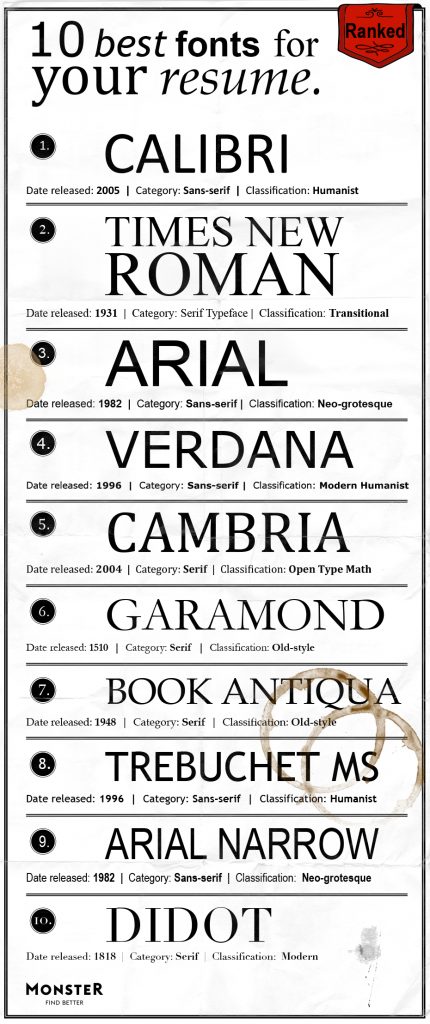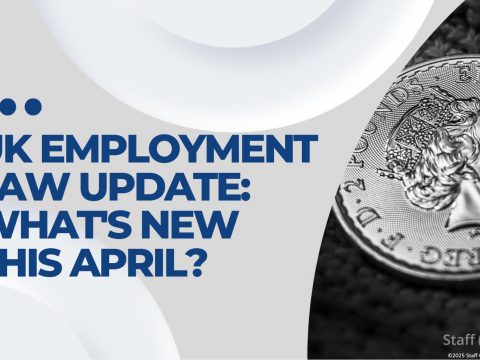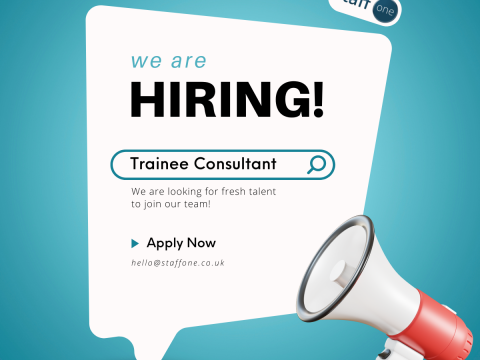- Contact us:
- 03300 535 600
- [email protected]

Temp Working Made Clear
January 28, 2020
Statement: COVID-19
March 13, 2020Staff One receives around 500 CV’s each week across our divisions, all of which have differing levels of information, clarity and presentation . Today we’re giving you a quick fire checklist for things you might want to consider before hitting send on that all important job application.
Font – Everyone loved Comic Sans in the 1990’s, no-one does now. Stick with fonts like Calibri, Times New Roman or Arial. They’re clean, clear and professional.

Additional Info – You might be tempted to list your hobbies, family status and a witty anecdote however a typical recruiter spends on average of six seconds reading your CV the first time they see it (they really do). The trick is to fill your CV with the most specific information relating to your suitability to the role. If you’re writing your CV for the first time or re-hashing it after a while away from job seeking; don’t be afraid to strip your CV back to basics and remove the information that unnecessarily bulks it up. It could have an adverse affect and give the hirer the impression that you struggle to clearly present information or get right to the point.
Size – As above; your CV doesn’t fill as many pages as you’d have liked, however, the aim of the game is quality not quantity. Don’t worry if it only fills one page. Whatever you do, don’t be tempted to crank the font size a couple of notches. This will only serve to detract from the appearance of what could be a great CV. Also, you aren’t ten.

Pictures – UK employment law is pretty tight when it comes to hiring someone based on your looks unlike other countries where your outward appearance may have a bearing on you getting through to interview. Aside from applications for roles within Film, TV, Modelling or promotions; a picture on your CV isn’t a prerequisite unless requested.
Cover Letter – Don’t feel forced to include one unless asked. Covering letters originally existed so that when you posted your CV out you sent it along with a letter explaining which job it had been submitted for. With digital applications being the norm these days, the covering letter is all but obsolete. If you’re sending your CV to a company directly then the chances are you’re attaching it to an email explaining why you’re sending it and if you apply online then the submission itself will be explanation enough.
Spelling – It happens to the best of us. Letting that one random spelling mistake slip through the net can happen but don’t be so hasty to fire off your newly re-hashed CV that you forget to actually give it a read through and to check for grammar and those red squiggly lines. We see applications from all ends of the salary spectrum and spelling errors happen to everyone from entry level to CEO.
Contact Details – It sounds common sense but there are people out there that forget to add their contact details. Mobile number, email address, town/city + county; that’s all. There’s no need for NI number or date of birth or any extensive info, likewise, recruiters and recruiting managers need some way to reach you. Also….whilst your at it, make sure your email address is at least a little formal.
Rewrite – It’s not dishonest to re-write your CV to suit the job you’re applying for. Repeating the key words and phrases in your work history that match with those in the job description or to scale down the detail in jobs that aren’t similar to the one you’re applying for. As long as you aren’t embellishing the information you write to be less than truthful.
Qualification – List your qualifications. Don’t be shy about showing off the courses, certificates, tickets and cards that you’ve worked hard to get. Whether or not they relate to the job you’re applying for, they demonstrate that you have an ability to learn and to commit to qualification and education.
Be Honest – It sounds like an obvious one but be honest, really. Little white lies like length of time working for a company or big whoppers like embellishments about seniority or qualifications can and will come back to bite you.
It’s important to remember that a lie in your CV or application are legally grounds for dismissal and can be classed as fraud. With the advent of enhanced DBS checks and the ease of accessing information through the internet and platforms such as LinkedIn, it isn’t difficult to verify your back-story.




